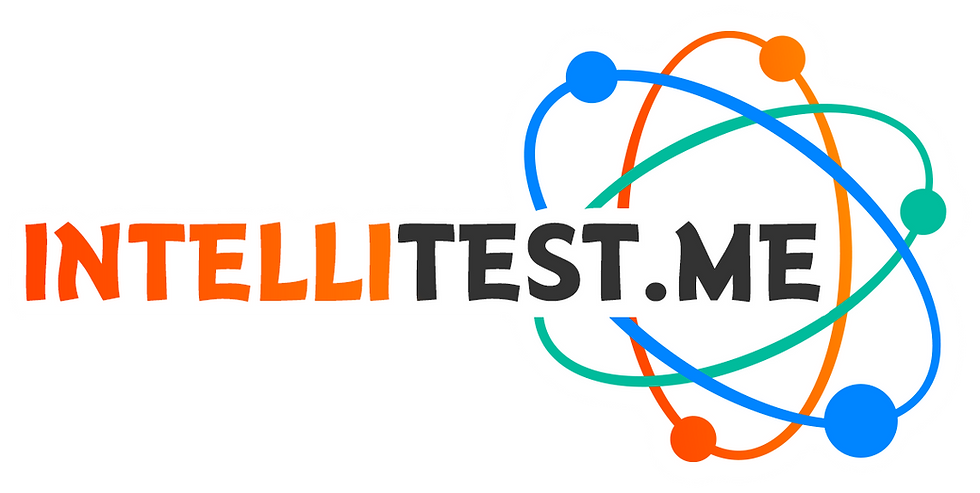The Top AI Automation Testing Tools of 2024
- Jun 13, 2023
- 6 min read
Updated: Nov 8, 2023
Razaq Kazeem @.Kazeem.R / 2:00 PM EDT. June 13, 2023.

In today's rapidly evolving technological landscape, software development and testing have become integral components of any business's success. As the demand for faster delivery and higher-quality software increases, traditional manual testing methods struggle to keep up with the pace. This is where AI automation testing comes into play. Leveraging the power of artificial intelligence (AI) and machine learning (ML), AI automation testing is revolutionizing the way software is tested, enhancing efficiency, accuracy, and scalability. In this article, we will delve into the world of AI automation testing, exploring its key concepts, benefits, and implementation strategies.
In the fast-paced world of software development, ensuring the quality of applications is crucial for success. With the advent of artificial intelligence (AI), automation testing has become more efficient and effective than ever before. AI automation testing tools leverage advanced algorithms and machine learning capabilities to streamline the testing process, detect bugs, and improve overall software quality. In this article, we will explore the top 10 AI automation testing tools set to significantly impact 2023. From intelligent test case generation to predictive defect analysis, these tools are revolutionizing the way testing is conducted in the software industry.
Understanding AI Automation Testing
AI automation testing, also known as intelligent test automation, refers to the use of AI and ML technologies to automate the software testing process. It involves creating intelligent systems capable of analyzing vast amounts of data, making informed decisions, and executing test cases automatically. By mimicking human-like testing behaviours and cognitive abilities, AI automation testing accelerates the testing process, reduces human errors, and improves overall software quality.
The Benefits of AI Automation Testing
Implementing AI automation testing offers numerous advantages for organizations striving to deliver robust software products. Let's explore some of the key benefits:
Enhanced Test Coverage: AI automation testing enables comprehensive test coverage by executing a vast number of test cases, identifying edge cases, and uncovering hard-to-find bugs.
Increased Efficiency: With AI-powered testing, repetitive and time-consuming tasks are automated, allowing testers to focus on more critical and creative aspects of testing. This significantly reduces the time required for testing cycles and accelerates software delivery.
Improved Accuracy: AI algorithms excel at pattern recognition and anomaly detection, enabling accurate identification of defects and ensuring software quality.
Scalability: AI automation testing facilitates scalability by effortlessly scaling up or down the testing infrastructure based on project requirements. This scalability ensures efficient testing even in complex and large-scale software systems.
Cost Savings: By automating the testing process, organizations can reduce the dependency on manual testers, leading to significant cost savings in the long run.
Implementing AI Automation Testing
To effectively implement AI automation testing, organizations need to consider the following key steps:
Step 1: Test Strategy and Planning
Define a comprehensive test strategy that outlines the testing process's objectives, scope, and desired outcomes. Identify the test scenarios, critical areas, and the most suitable AI automation testing tools for your specific requirements.
Step 2: Data Collection and Preparation
Accurate and diverse data is essential for training AI models. Collect relevant datasets, ensuring they encompass a wide range of scenarios, edge cases, and possible inputs. Cleanse and preprocess the data to eliminate noise and ensure its suitability for training the AI models.
Step 3: Model Training and Validation
Train AI models using the collected and preprocessed data. Use machine learning algorithms to teach the models to identify patterns, classify inputs, and make accurate predictions. Validate the trained models by testing them against known test cases and evaluating their performance metrics.
Step 4: Test Execution and Reporting
Develop an automated testing framework that leverages the trained AI models to execute test cases automatically. Monitor and analyse the test results, generating comprehensive reports that highlight the identified defects and provide insights for further improvements.
Step 5: Maintenance and Continuous Improvement
Regularly update and fine-tune the AI models based on the feedback received from the testing process. Continuously evaluate the effectiveness of AI automation testing and identify areas for improvement to ensure its long-term success.
Top 10 AI Automation Testing Tools of 2023
1. TestGenius

TestGenius takes the top spot in our list of AI automation testing tools for 2023. This tool combines the power of AI and machine learning to automatically generate test cases based on code analysis and user behaviour patterns. By intelligently exploring the application's functionality, TestGenius ensures comprehensive test coverage and significantly reduces the time and effort required for manual test case creation.
2. BugBot
BugBot is an AI-powered testing tool designed to detect and analyze bugs in software applications. With its advanced algorithms, BugBot can identify potential defects by analyzing code, log files, and user inputs. By proactively identifying bugs, BugBot allows developers to resolve issues before they impact end users, resulting in enhanced software quality and improved user experience.
3. IntelliTester

IntelliTester is an intelligent testing tool that leverages machine learning to optimize test execution and prioritize test cases based on their criticality. By learning from previous test runs and user feedback, IntelliTester continuously improves its testing strategy, reducing test cycle times and increasing overall efficiency. With its adaptive testing capabilities, IntelliTester ensures that the most critical areas of an application are thoroughly tested, improving the overall quality of the software.
3. AutomaTest

AutomaTest is an AI automation testing tool that focuses on test script generation and maintenance. By analyzing application behaviour and user interactions, AutomaTest automatically generates robust and maintainable test scripts. This tool significantly reduces the effort required to create and maintain test scripts, allowing testers to allocate more time to exploratory testing and other critical tasks.
4. PredictoQA

PredictoQA is an AI-driven tool that utilizes natural language processing (NLP) techniques to predict potential quality assurance (QA) issues. By analyzing requirements, design documents, and historical data, PredictoQA can identify potential quality risks and provide valuable insights to improve testing strategies. By leveraging the power of NLP, PredictoQA assists in early defect detection and helps ensure that the developed software meets the desired quality standards.
5. AutoDefect

AutoDefect is an AI automation testing tool that focuses on defect management and analysis. By analyzing test results, log files and user feedback, AutoDefect identifies common patterns and trends associated with defects. This tool provides developers with actionable insights to address recurring issues and make data-driven decisions to improve software quality.
6. SmartCodeScan

SmartCodeScan is an AI-powered static code analysis tool that assists developers in identifying potential code defects and security vulnerabilities. By analyzing the source code, SmartCodeScan detects coding patterns that may lead to bugs or vulnerabilities, allowing developers to proactively fix issues before deployment. With its comprehensive code analysis capabilities, SmartCodeScan improves software reliability and reduces the risk of security breaches.
7. TestOptimizer

TestOptimizer is an AI automation testing tool designed to optimize test suite generation and execution. By analyzing the application's code, TestOptimizer identifies redundant or duplicate test cases, helping testers create lean and efficient test suites. This tool also provides insights into the impact of code changes on existing test cases, allowing for effective regression testing and reducing the risk of introducing new bugs.
8. AutoReport

AutoReport is an AI-powered reporting tool that automates the generation of test reports. By analyzing test results and metrics, AutoReport generates comprehensive reports with valuable insights, including defect trends, test coverage, and overall software quality. With its automated reporting capabilities, AutoReport saves testers' time and effort, enabling them to focus on critical testing activities.
9. AgileMonitor

AgileMonitor is an AI automation testing tool specifically designed for Agile development environments. This tool leverages machine learning algorithms to monitor and analyze team collaboration, code changes, and test execution. AgileMonitor provides real-time feedback on the status of Agile projects, identifies potential bottlenecks, and assists in making data-driven decisions to improve the efficiency and effectiveness of Agile development cycles.
As the software industry continues to evolve, AI automation testing tools play a crucial role in ensuring the delivery of high-quality applications. From intelligent test case generation to predictive defect analysis, these tools empower testers and developers to detect bugs, optimize test suites, and improve overall software quality. In 2023, TestGenius, BugBot, IntelliTester, AutomaTest, PredictoQA, AutoDefect, SmartCodeScan, TestOptimizer, AutoReport, and AgileMonitor are the top 10 AI automation testing tools that are set to revolutionize the testing landscape. By harnessing the power of AI, these tools pave the way for more efficient, accurate, and reliable testing processes in the years to come.
Join the next BusyQA online software testing training, where our instructor will show you the tools and technology to be the best software tester, click here to get started.



Comments